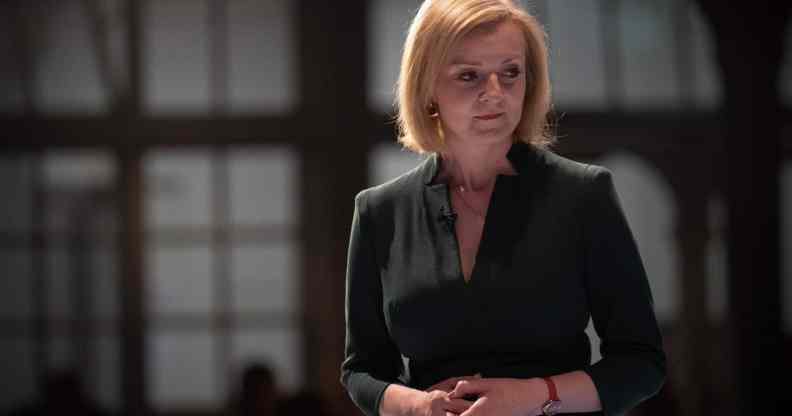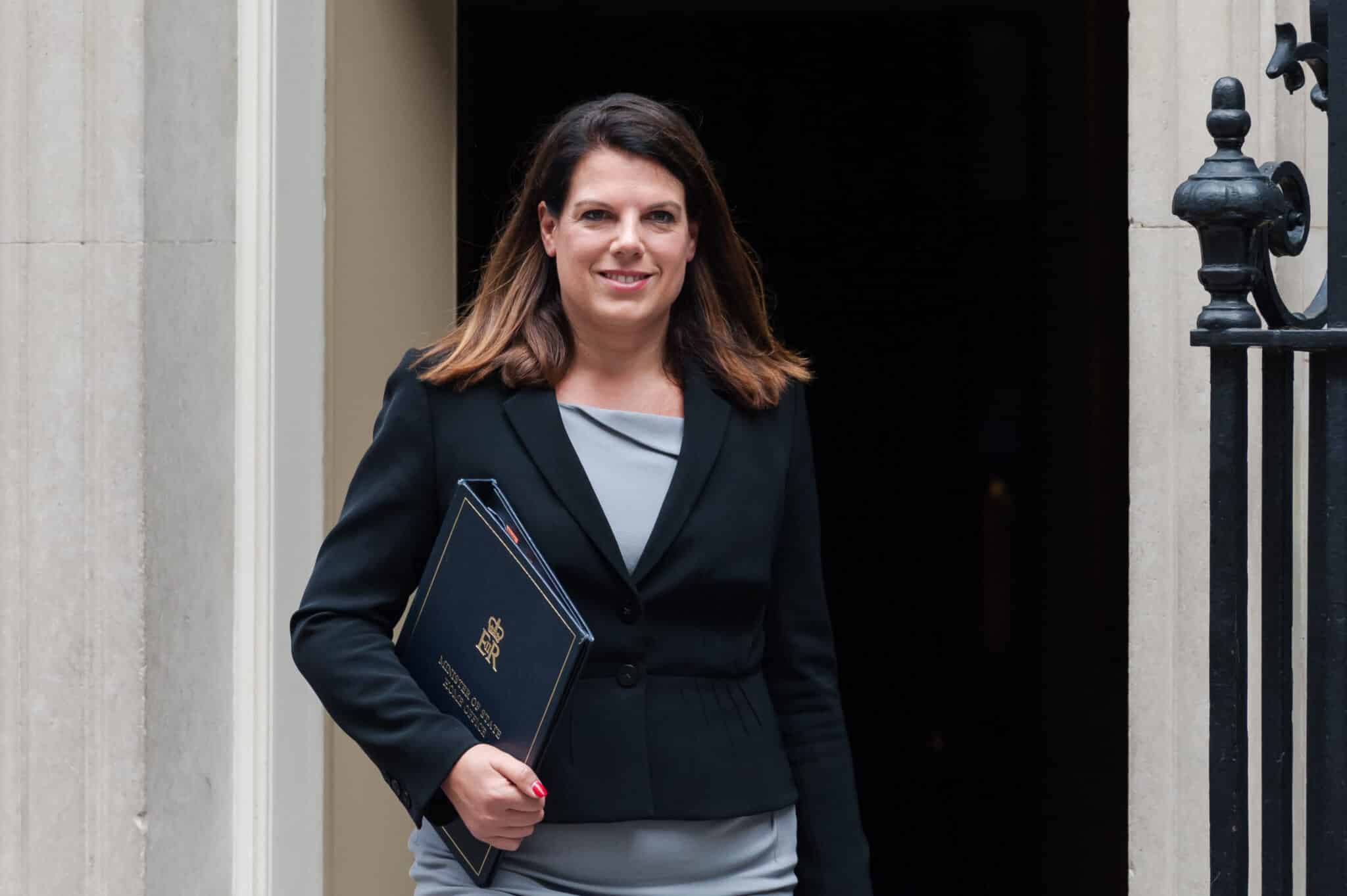Tory government stripped abortion rights from gender equality statement to be ‘inclusive’

Liz Truss speaks at a Conservative Party leadership hustings on August 5, 2022. (Carl Court/Getty)
Liz Truss speaks at a Conservative Party leadership hustings on August 5, 2022. (Carl Court/Getty)
The UK government has said it removed references to abortion from a gender equality statement to be “inclusive of all perspectives and views”.
An international freedom of religion conference convened by Conservative leadership frontrunner Liz Truss in her capacity as foreign secretary was embroiled in a diplomatic row after countries such as Denmark and Norway accused the UK of using its position to drop “sexual and reproductive health and rights” from the summit’s conclusion.
The original text, which supported bodily autonomy and abortion rights, was modified on the government’s website to completely omit any mention of the subject in what ministers called an effort to be “constructive”, according to The Independent.
Twenty countries signed the original conclusion, but just eight – including Malta, which bans abortions outright – have signed the new statement.
Critics of the modification, which included foreign diplomats and cross-party ministers, said the reversal was “derisory” and a “disturbing sign” that anti-abortion politics is gaining popularity in the UK.
More than 20 human rights groups called on Truss – who has yet to comment on the matter – to reverse the decision immediately.
“In our capacity as chair of the event, we amended the statement we made at the Freedom of Religion or Belief Conference to make the final statement more inclusive of all perspectives and views,” foreign office deputy Lord Ahmad said.
“The UK is committed to defending and promoting universal and comprehensive sexual and reproductive health and rights and will continue working with other countries to protect gender equality in international agreements.”
Earlier this year American law-makers stripped US women of their automatic rights to abortion, with some states banning it outright, sending shockwaves around the world.

Caroline Nokes leaves 10 Downing Street after the weekly Cabinet meeting on 09 July, 2019 in London, England. (Wiktor Szymanowicz/Getty)
Conservative women and equalities select committee chair Caroline Nokes called the move a “sudden backtracking” on reproductive rights and wrote to Truss urging her to explain the decision.
“It is very unclear as to why the sections on sexual and reproductive health were withdrawn at such a late stage and apparently with no consultation or discussion,” Nokes told The Guardian in July.
While being a constantly contentious issue in the fight for social justice, abortion has once again become an especially divisive subject following the US Supreme Court’s decision to overturn the landmark Roe v Wade that set a precedent for abortion rights nationwide.
The decision has had a far-reaching effect on both nationwide and international views on reproductive rights, especially in the UK where certain ministers have already opted to discuss abortion rights in the country.
‘No right to impose his view on others’
Tory MP Danny Kruger told attending members of the House of Commons that he didn’t believe women had an “absolute right to bodily autonomy” during a reproductive rights debate to fierce criticism across parliament. The MP for Devizes in Wiltshire said on 28 June that “in the case of abortion,” women don’t have the same reproductive rights because of the “fact that another body is involved”.
Telford Conservative MP Lucy Allen told Metro after a clip of Kruger making the remarks went viral: “I accept Danny’s right to disagree, but he has no right to impose his views on others.”
Kruger was one of the 61 Conservative MPs to vote against extending access to abortions in Northern Ireland during a 22 June vote.
In response to the comments, Labour MP Stella Creasy told the house that abortion is “fundamentally for many of us a human rights issue”.
“Currently in the UK, only women in Northern Ireland have their constitutional right to an abortion protected as a human right, but we can change that and that is what this place and this urgent question can do today.”

